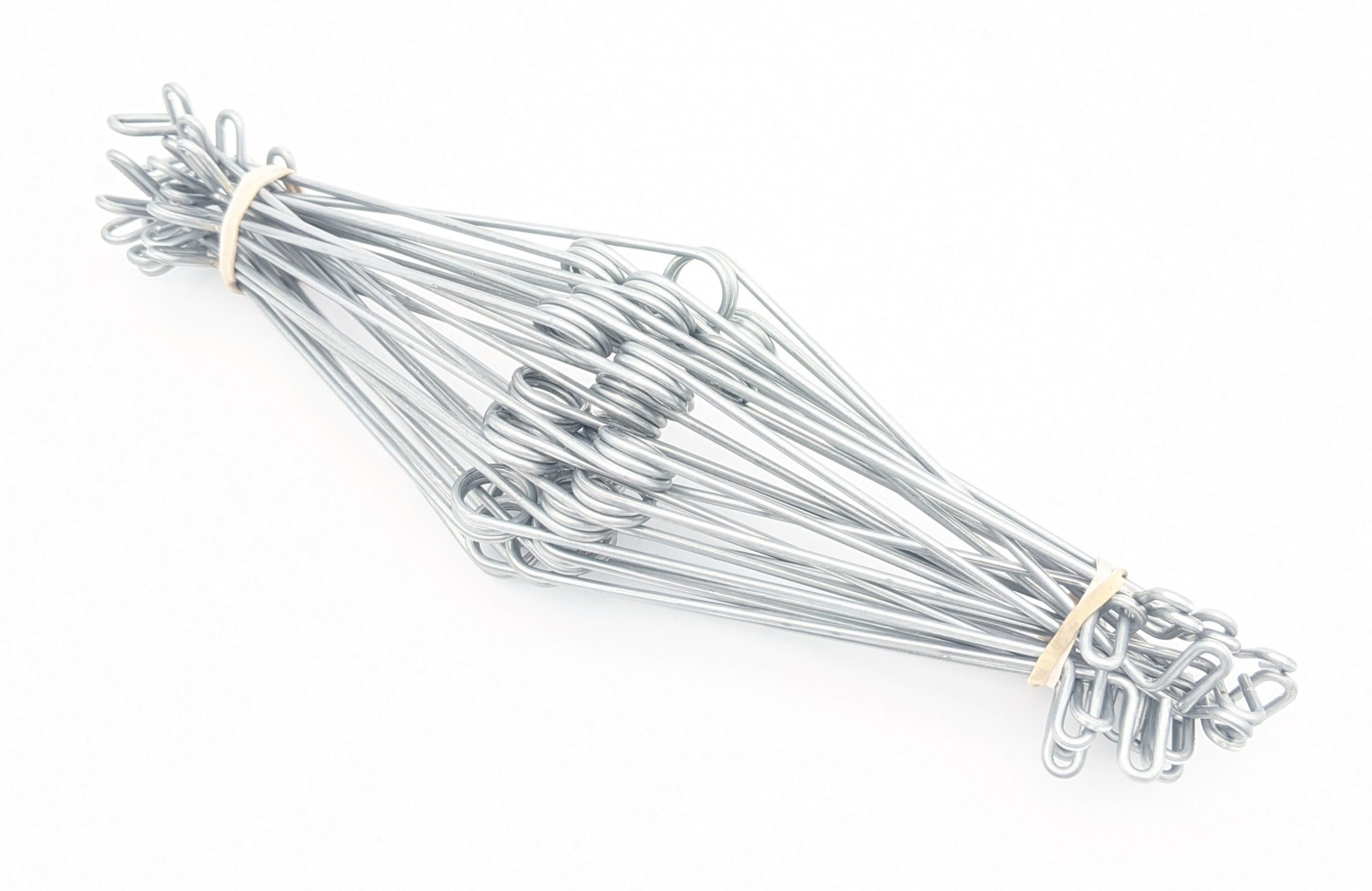Get unique, complex parts easily. No matter your requirements, Chaoyi Spring creates hard-to-produce coil springs and wire forms.
Let us help you create the custom wire form you need, from S-hooks and J-hooks to utility hooks and more.
We work closely with customers across a wide range of industries, helping them design and manufacture made-to-order parts.
Why choose Chaoyi Spring? We prioritize customer-focused collaboration, modern equipment and the latest technology to make your parts per print.
Find the information and guidance you need, from measuring a spring to learning about materials, placing an order and much more.
Imagine a spring, a seemingly simple object, yet capable of exhibiting fascinating behavior when disturbed. When you give one end of the spring a push, a ripple travels down its


Imagine a spring, a seemingly simple object, yet capable of exhibiting fascinating behavior when disturbed. When you give one end of the spring a push, a ripple travels down its length, carrying energy without transporting the spring itself. This intriguing phenomenon is the essence of longitudinal waves, where the vibrations propagate parallel to the direction of wave travel. In this exploration, we delve into the captivating world of longitudinal waves on a spring, unraveling the underlying principles, visualizing their propagation, and uncovering their real-world applications.

At the heart of this fascinating phenomenon lies the concept of vibration. When a spring is disturbed, individual coils within the spring oscillate back and forth about their equilibrium positions. These oscillations, however, are not isolated; they influence their neighboring coils, setting them into motion as well. This chain reaction of oscillations, where each coil transmits energy to its neighbor, creates a traveling disturbance called a longitudinal wave.
To understand this concept more clearly, imagine a line of people standing close together. If the first person pushes the second, who in turn pushes the third, and so on, a wave of motion propagates through the line. Similarly, in a spring, the compression or expansion of each coil acts as the 'push' that transfers energy to the next coil, creating a wave of compression and rarefaction along the spring.
Visualizing the propagation of longitudinal waves on a spring can be quite insightful. Imagine a spring stretched out horizontally. When you give one end a quick push, you create a compressed region, followed by a stretched region. This compression and rarefaction travel along the spring, carrying energy without transporting the spring itself. The motion of individual coils is parallel to the direction of wave travel, hence the term 'longitudinal'.
You can further appreciate this phenomenon by visualizing the movement of a single coil. As the wave passes, the coil moves back and forth, oscillating around its equilibrium position. The amplitude of this oscillation is the maximum displacement of the coil from its equilibrium position, and it represents the strength of the wave.
Like any wave, longitudinal waves on a spring are characterized by their wavelength, frequency, and speed. The wavelength is the distance between two consecutive points on the wave that are in the same phase (e.g., two consecutive compressions or rarefactions). The frequency is the number of wave crests passing a fixed point per unit time. The speed of the wave is the distance the wave travels per unit time.
These properties are interconnected: the speed of the wave is determined by the properties of the spring, specifically its tension and mass per unit length. A tighter spring with higher tension supports faster wave propagation, while a spring with higher mass per unit length slows down the wave. The frequency of the wave, on the other hand, depends on how quickly the spring is disturbed. A faster disturbance generates a higher frequency wave.
Longitudinal waves on a spring might seem like a simple, isolated phenomenon, but their principles have profound applications in the real world. Sound waves, a quintessential example, are longitudinal waves that travel through air, water, and other mediums. When you speak, your vocal cords vibrate, creating pressure waves in the air that reach your listener's ears, allowing them to hear your words.
Beyond sound, longitudinal waves are also fundamental to many technological applications. Seismic waves, which travel through the Earth's crust, can be used to study the structure of the Earth's interior. Ultrasound, which uses high-frequency sound waves, has numerous applications in medical imaging and therapy. These examples highlight the broad impact of longitudinal waves, extending far beyond the seemingly simple spring.
The world of waves is a fascinating one, teeming with intricacies and nuances. The study of longitudinal waves on a spring provides a foundation for understanding more complex wave phenomena. Exploring the superposition of waves, where multiple waves interact, or the diffraction of waves, where waves bend around obstacles, unveils the intricate beauty of wave behavior.
Moreover, the study of wave phenomena has paved the way for advancements in diverse fields, from communication technology to medical diagnostics. Understanding the fundamentals of longitudinal waves opens doors to a world of scientific exploration and technological innovation.
Longitudinal waves on a spring, seemingly simple, reveal a rich tapestry of scientific principles and real-world applications. By understanding their propagation, properties, and diverse manifestations, we gain a deeper appreciation for the fundamental nature of vibrations and their impact on our world. So, the next time you see a spring, don't just think of its elasticity; imagine the waves of energy rippling through its coils, a testament to the fascinating world of physics.
Browse some of the custom wire forms and springs that we manufacture. Don’t see what you need? We specialize in made-to-order products that meet your application requirements.
Visit Our GalleryNeed a custom wire form or coil spring? We make it work. Fill out the contact form and a representative will respond within 1 business day. If you have a PDF or CAD file, you can submit to request a quote.